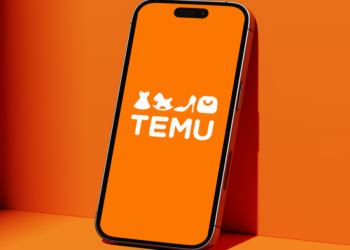As we look toward 2026, founders across the MENA region face both massive potential and new challenges in securing capital.
Middle East investors are ready to deploy serious money. Saudi Arabia and the UAE lead the charge, accounting for nearly 70% of all regional deals. But with debt financing dominating recent rounds and traditional VC becoming more selective, smart founders need fresh strategies to stand out.
1. Government Programs
Vision 2030 transformed Saudi Arabia into a startup powerhouse with direct government backing. The Saudi Venture Capital program now manages a $1 billion fund specifically for early-stage companies. Meanwhile, NEOM allocated $500 million for AI and robotics startups through its FutureSpark Base Camp Accelerator.
The UAE matches this ambition with multiple government-backed initiatives. Dubai Next and similar programs offer both funding and regulatory support for fintech and deep-tech ventures. Egypt also stepped up with $384.6 million in startup investments in 2024, showing strong government commitment across the region.
These programs typically offer:
- Grant funding from $50,000 to $2 million
- Zero-equity government loans
- Fast-track licensing and regulatory approvals
- Access to government contracts and pilot programs
2. Sovereign Wealth Funds
Middle East sovereign wealth funds deployed 54% of global SWF capital in the first half of 2024, the highest level since 2009. This creates direct access to massive funding pools for startups aligned with national priorities.
Saudi Arabia’s Public Investment Fund (PIF) actively invests in AI, renewable energy, and logistics startups. The UAE’s Mubadala and ADQ focus on fintech, healthtech, and climate technology. Kuwait’s Future Fund targets regional startups with proven business models.
To access SWF funding:
- Focus on sectors aligned with national development goals
- Demonstrate clear economic impact and job creation potential
- Prepare for longer due diligence processes (6-12 months)
- Consider co-investment alongside established VC funds
3. Sharia-Compliant Financing
Islamic finance assets reached $5.98 trillion globally in 2024, with Saudi Arabia controlling 49.3% of the Middle East market. This opens significant funding opportunities for startups willing to structure deals according to Islamic principles.
Sharia-compliant financing options include:
- Murabaha (cost-plus financing) for equipment and inventory
- Musharaka (partnership-based equity investments)
- Sukuk (Islamic bonds) for larger funding rounds
- Ijarah (lease-to-own) arrangements for expensive assets
Major Islamic banks such as Al Rajhi Bank and Dubai Islamic Bank now offer dedicated startup financing programs. These often offer better terms than conventional loans since they focus on profit-sharing rather than interest payments.
4. Revenue-Based Financing
The MENA region embraced revenue-based financing (RBF) as venture debt reached $757 million in 2024. RBF allows startups to secure funding based on recurring revenue without giving up equity.
CredibleX raised $55 million in seed funding specifically to provide RBF solutions to regional startups. This model works especially well for SaaS companies, e-commerce platforms, and subscription-based businesses.
RBF typically offers:
- Funding amounts from $100,000 to $5 million
- Repayment as a percentage of monthly revenue (3-12%)
- No personal guarantees or collateral required
- Faster approval than traditional VC (2-6 weeks)
5. Angel Investor Networks
Angel investing surged across MENA with notable deals like 21Doctors completing their pre-seed round backed by strategic angel investors. Regional angel networks now offer funding ranging from $200,000 to $5 million, depending on startup stage and sector.
Key angel networks include:
- Emirates Angels (UAE) – focuses on tech startups
- Saudi Angels – supports Vision 2030-aligned companies
- Cairo Angels (Egypt) – backs fintech and e-commerce ventures
- Jordan Angels – targets regional expansion stories
To attract angel investment:
- Leverage personal networks and industry connections
- Participate in startup events and pitch competitions
- Join accelerator programs with strong alumni networks
- Focus on experienced entrepreneurs as potential investors
6. Crowdfunding Platforms
The MENA region hosts 78 active crowdfunding platforms supporting equity, debt, and reward-based campaigns. Platforms like Eureeca, Beehive, and Funding Souq provide regulated access to retail investors.
Equity crowdfunding works best for consumer-facing businesses with compelling stories. Debt crowdfunding suits established companies seeking working capital. Reward-based campaigns help product companies validate demand before full launch.
Successful crowdfunding requires:
- Professional marketing materials and videos
- Clear value proposition for investors/backers
- Regular campaign updates and engagement
- Realistic funding targets and timelines
7. Venture Capital
Traditional VC funding reached $2.1 billion in H1 2025, up 134% year-over-year. However, deal counts actually decreased, indicating larger but fewer investments.
VCs now focus on:
- Proven traction and revenue growth
- Clear path to profitability
- Strong unit economics and retention metrics
- Experienced founding teams with domain expertise
The “Series A crunch” affects MENA just like other regions. Startups need stronger metrics to secure institutional funding. Consider alternative routes first, then approach VCs from a position of strength.
Strategic Funding Approach for Success
Smart founders diversify funding sources rather than relying on a single channel. Start with government grants and programs to validate your business model. Use initial traction to attract angel investors or RBF providers. Build momentum before approaching institutional VCs or sovereign funds.
Consider geographic arbitrage. Some countries offer better terms for specific sectors. UAE excels in fintech regulation, Saudi Arabia provides manufacturing incentives, and Egypt offers cost-effective talent pools.
Time your funding cycles carefully. Q4 typically sees slower activity as institutions close their annual books. Q1 brings fresh budgets and renewed interest from investors.
The Middle East startup ecosystem is projected to exceed $10 billion annually by 2026. Success depends on matching your startup’s needs with the right funding sources while building sustainable business fundamentals that attract long-term investment partners.














